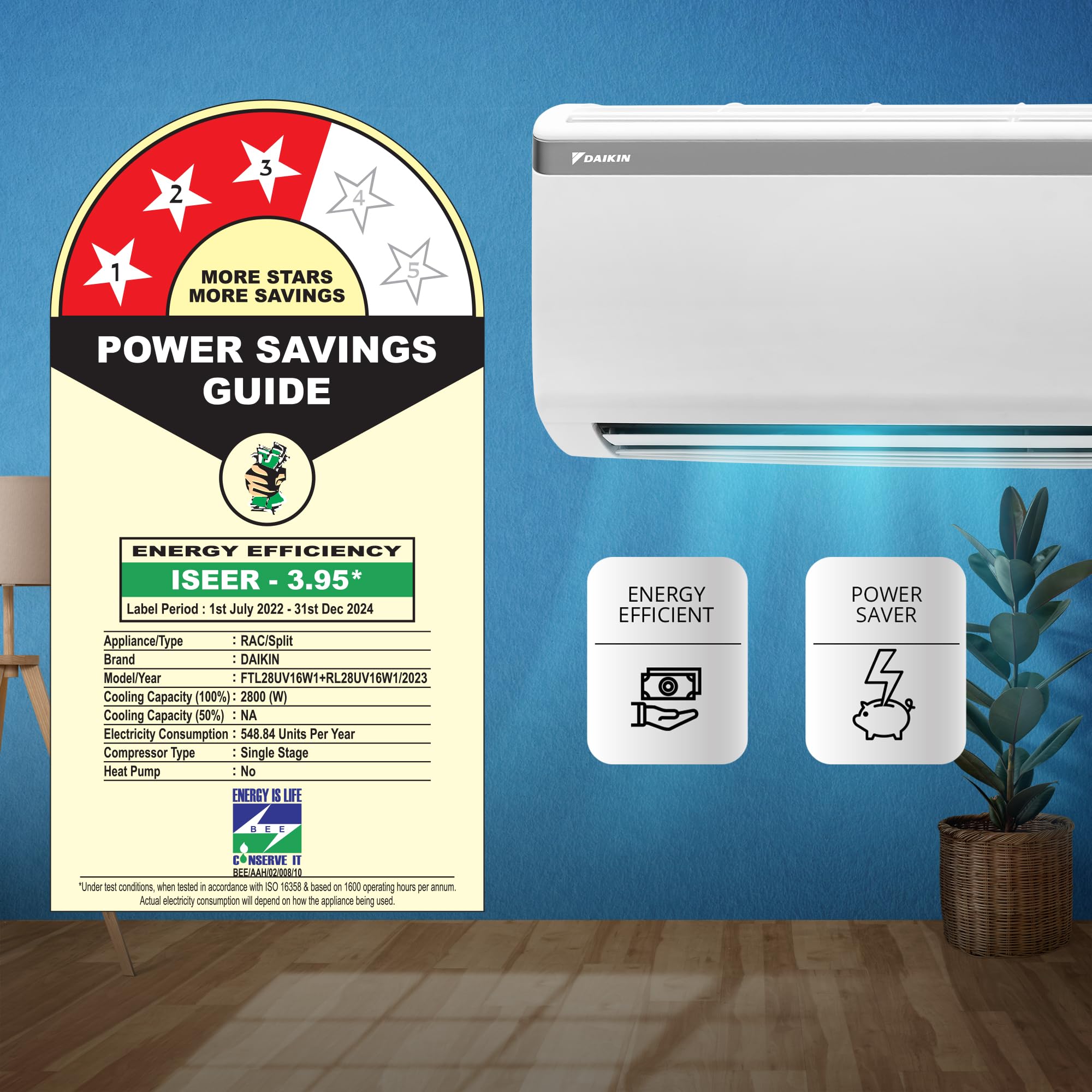
Compressor speed and running hours are the two major factors that affect how much electricity an air conditioner consumes in a bid to maintain the desired temperature. The compressor of a fixed speed or conventional air conditioner continually turns on and off while running at a constant speed. Generally speaking, power consumption is measured by multiplying the AC's wattage by its runtime in hours.
Inverter air conditioners, on the other side, tend to have reduced power consumption since a higher thermostat lowers compressor speed, which rapidly lowers power consumption. You may use an energy usage meter to find out how much power an air conditioner uses.
Finding The Efficiency of An Air Conditioner
These days, air conditioners are rated according to their energy efficiency ratio, or EER. It refers to the cooling capacity divided by the wattage of a unit. Therefore, 2,400 watts would be used by an air conditioner with a 24000 BTU capacity and an EER of 10.
Selecting an air conditioner with an EER of 11 or higher is strongly recommended due to its high power consumption.
Put simply, BTU stands for the unit's cooling capability. The price increases with the number of BTUs. For example, an 18000 BTU inverter split air conditioner price in Kenya would be lower than that of a 24000 BTU unit. But you should concentrate on EER, which should be higher.
Power Usage of 18,000 BTU Air Conditioners
Typically, 18,000 BTU air conditioners use 185 kWh of electricity per month.
The 12,000 to 18,000 BTU range may include rare air conditioner levels, such as 13,000, 14,000, and 15,000 BTU, and measures of room size frequently produce results that fall short of all ACs on the market.
In certain situations, a specialist might recommend a somewhat (or even much) larger unit (for example, an 18,000 BTU unit, if one is on the market).
1.5-ton air conditioners generally feature power/wattages between 1,470 and 1,614 watts, with EERs ranging from 11 to slightly over 12.
Remember that this is the watts while the units are operating at maximum efficiency, not the rising power usage. The yellow energy label on the unit usually includes the EER.
Choosing the best option is advised. Choose air conditioners with EERs greater than 12, as those with an EER of 12 are readily available. The difference between 11 and 12 isn't that important, though. Select a gadget with exceptional customer service, which is characterized by purchasing the item from a reliable vendor who offers free maintenance for the duration of the warranty.
Fortunately, inverter air conditioners in this range are widely accessible. When compared to their non-inverter equivalents, inverter devices can sometimes save 50% to 60% on energy use. Therefore, you might decide to save more money if you use your air conditioner more frequently.
There are several options available when it comes to lowering your air conditioner's energy consumption in addition to selecting one with a higher EER rating. Below is a list of some of them.
1. Always have a professional service your air conditioner on schedule.
2. Make use of a fan
3. Prefer white curtains.
4. Point the air conditioner's vent at yourself
5. Carefully adjust the thermostat's temperature
The BTU of the selected air conditioner type should be taken into consideration when purchasing one for your house. Additionally, follow the suggested AC usage guidelines to save your electricity costs. You can easily calculate an 18000 BTU AC price by taking into account all of the previously listed elements.

